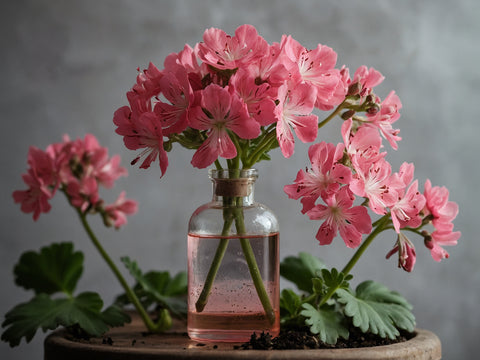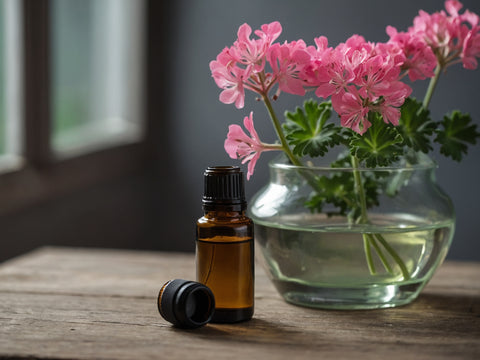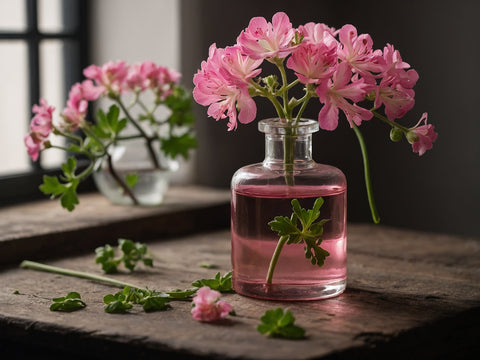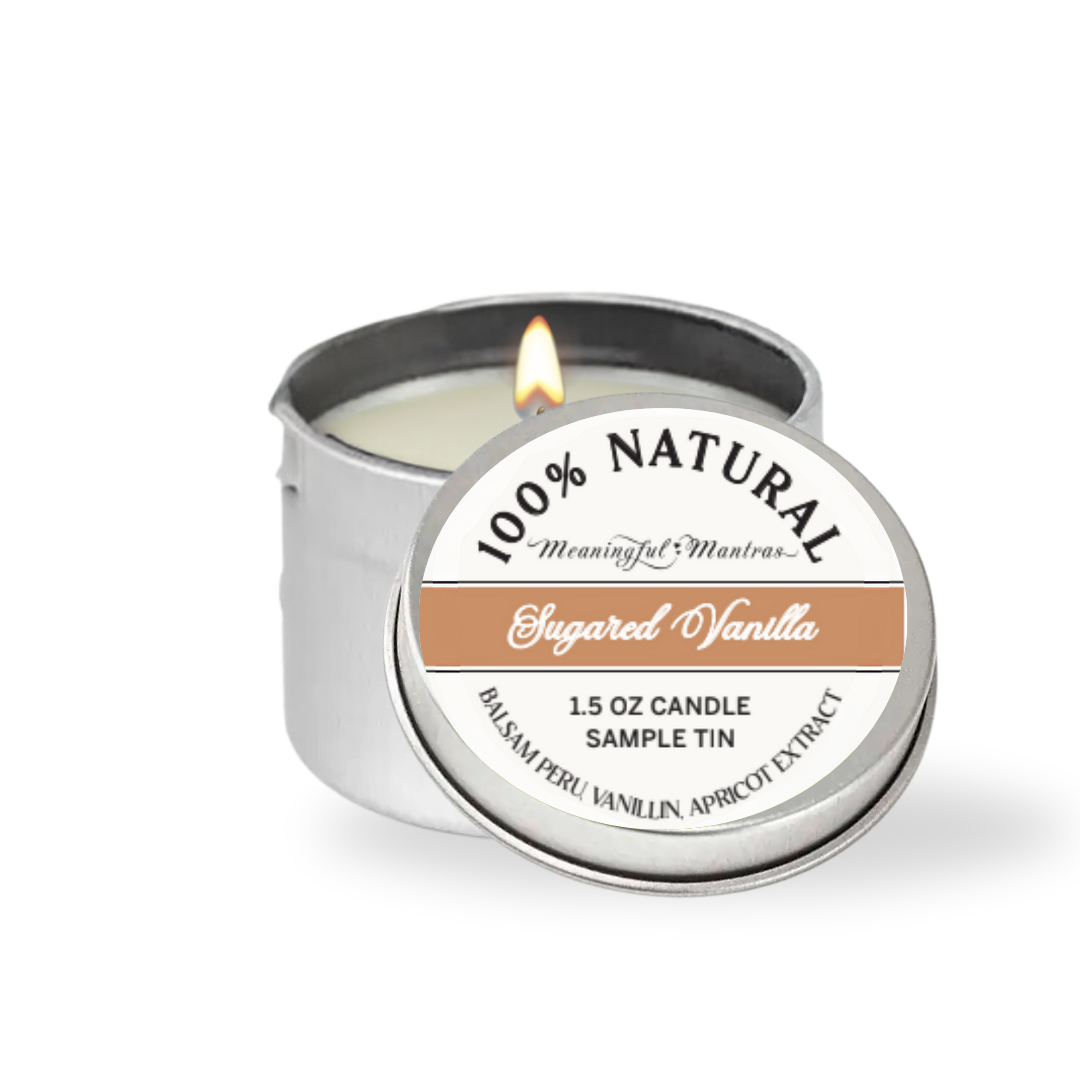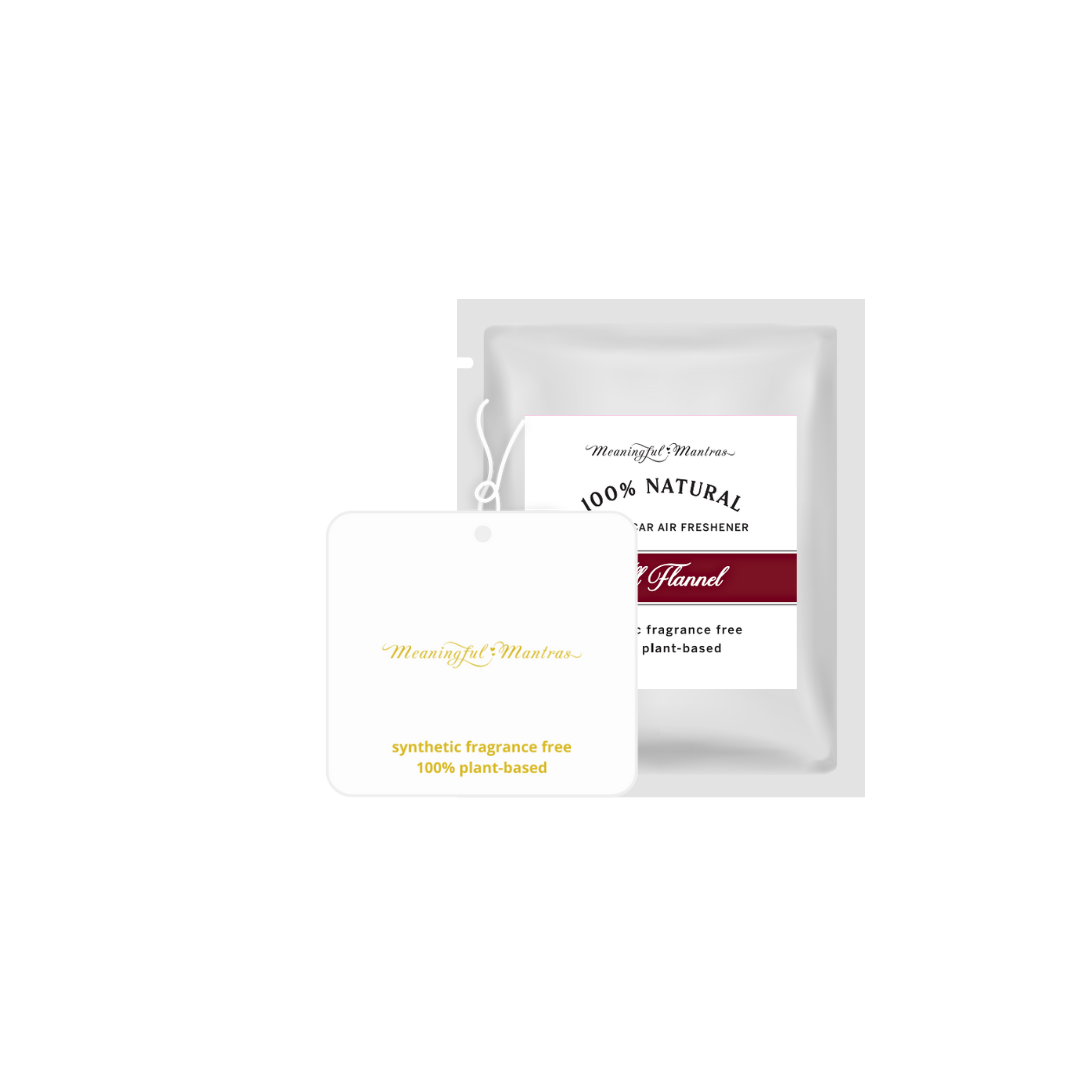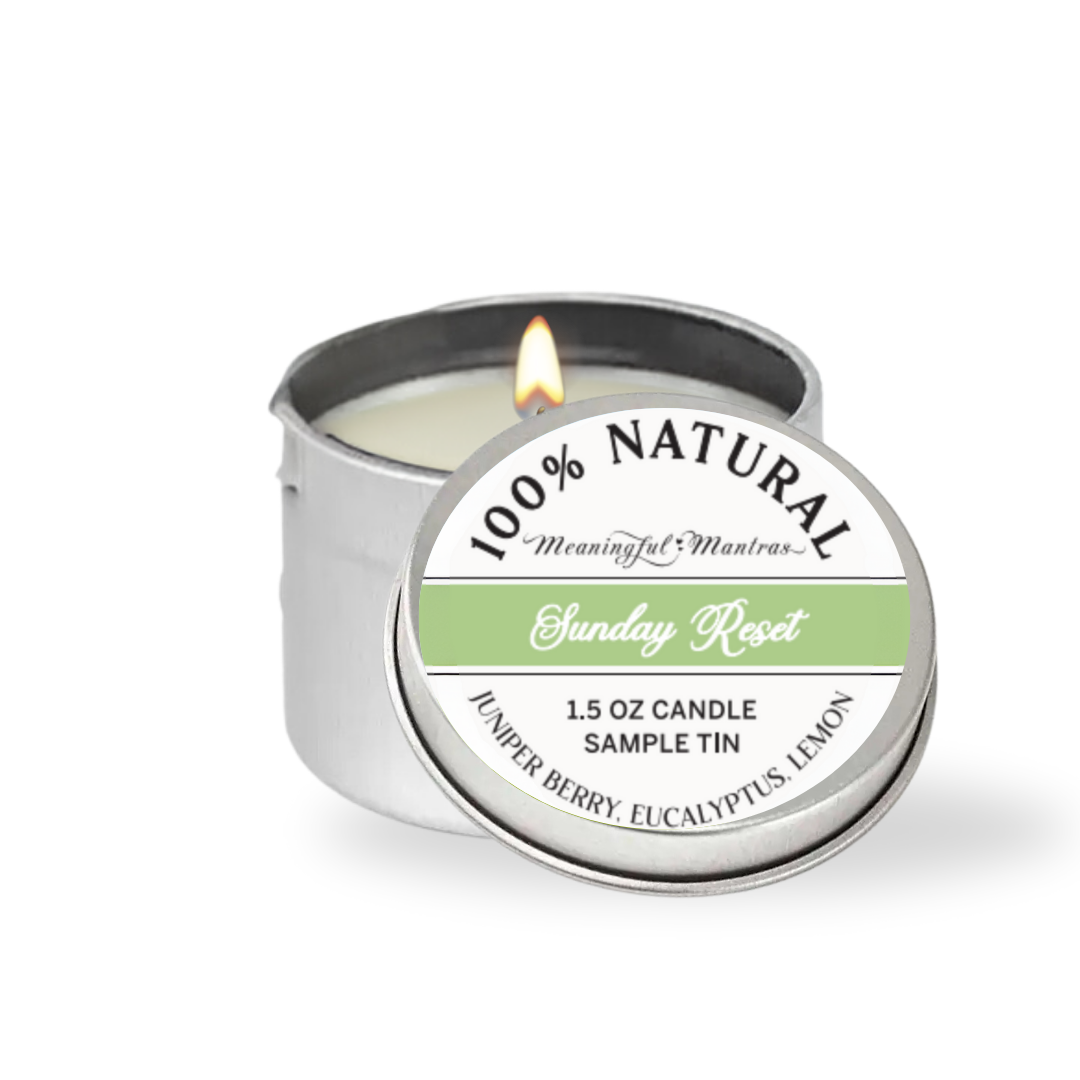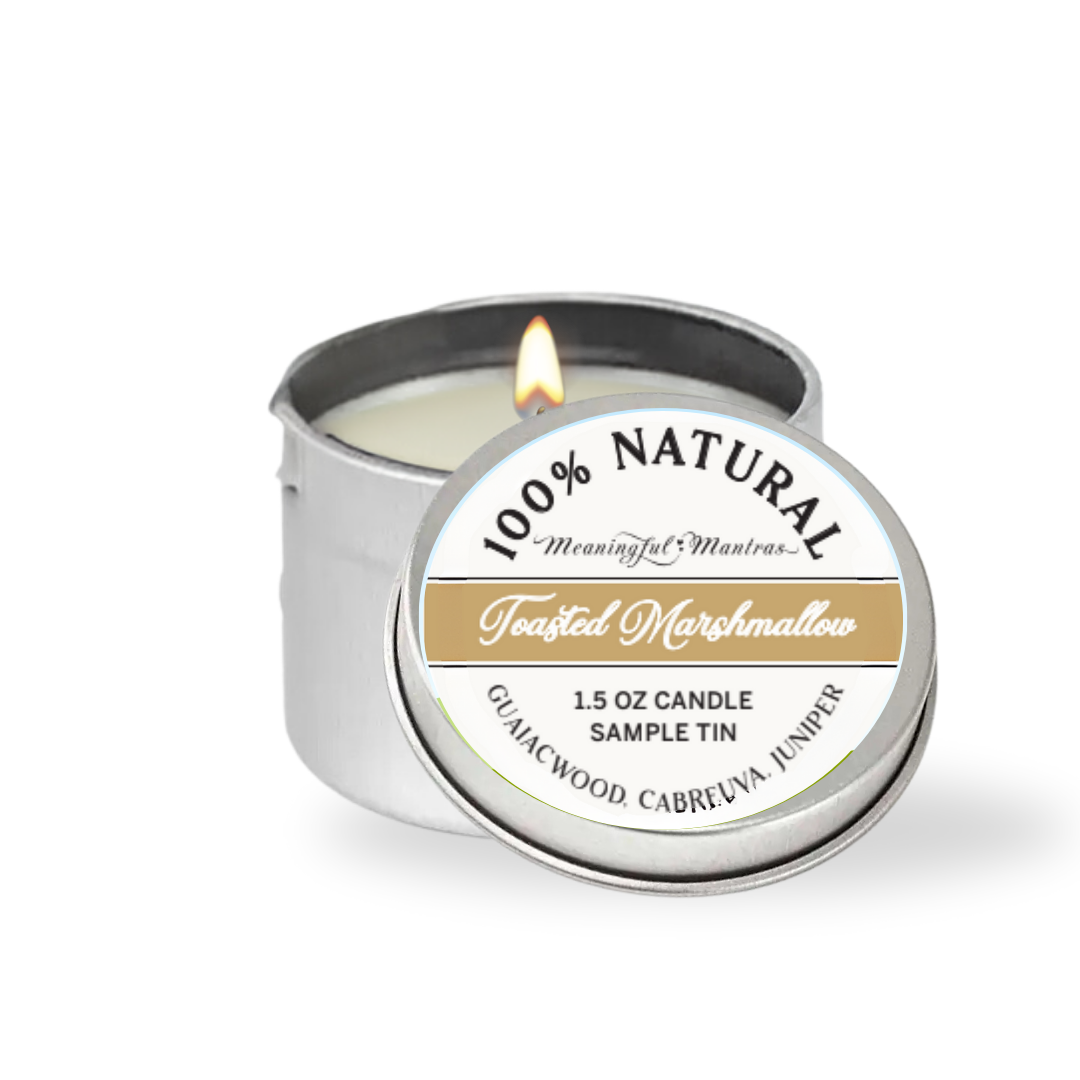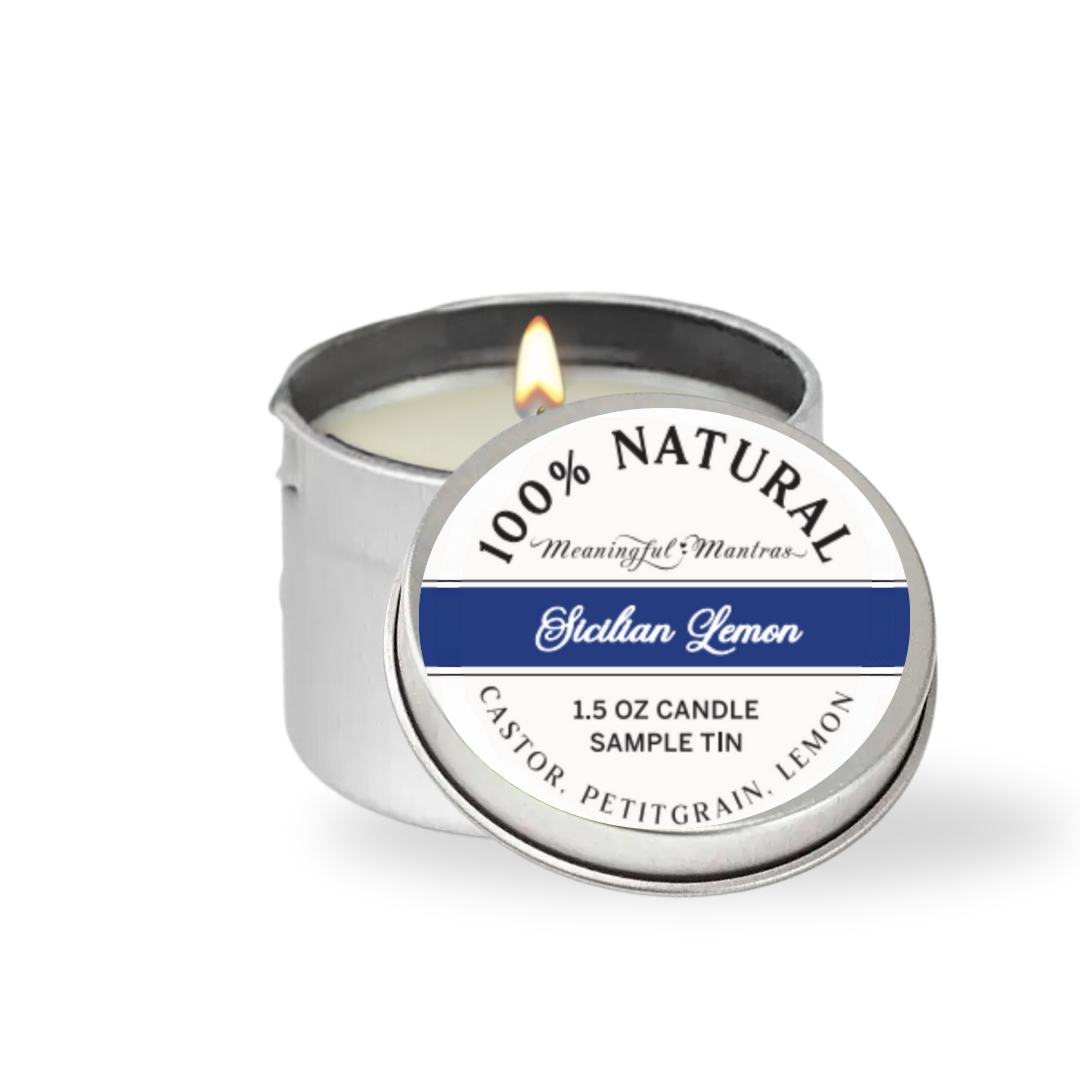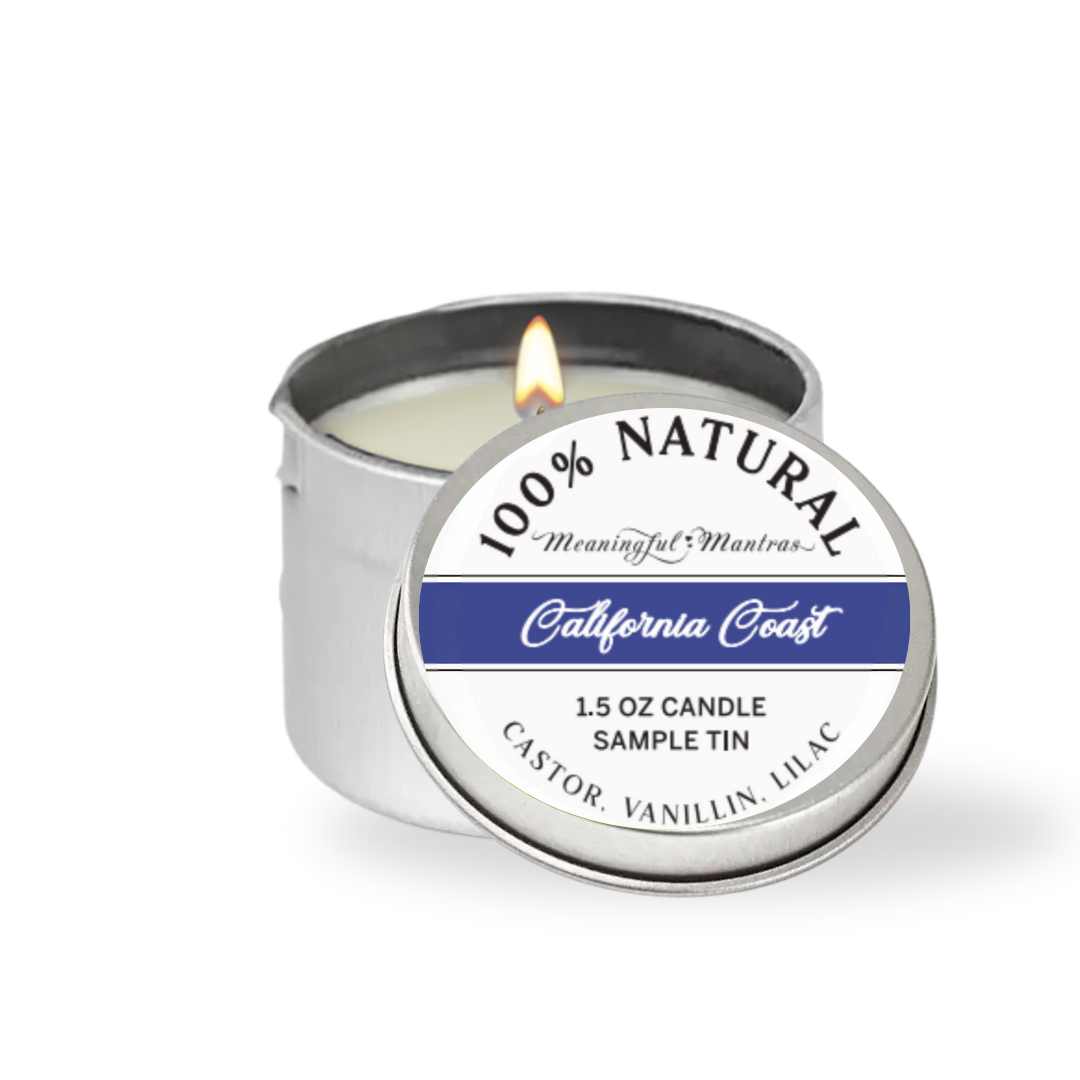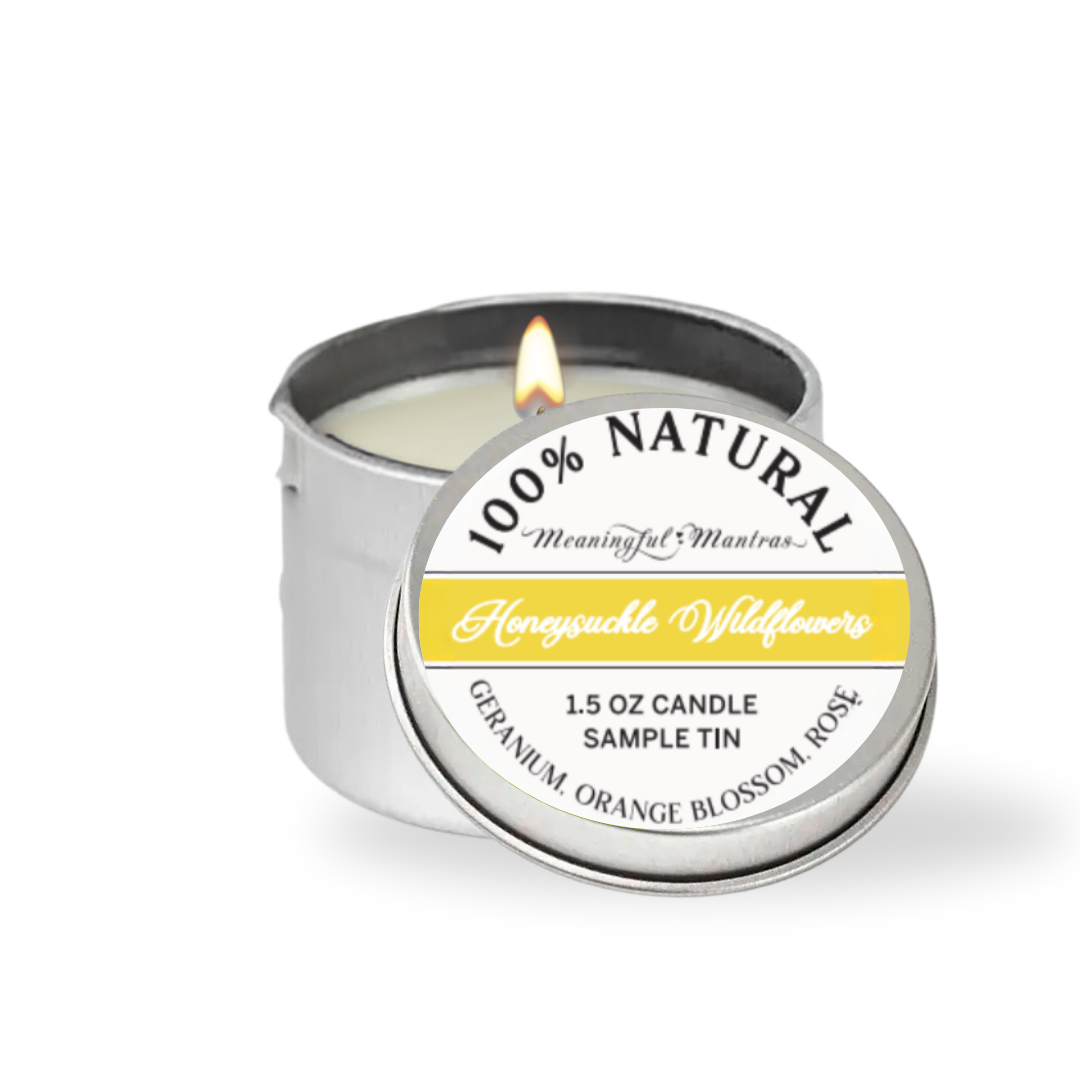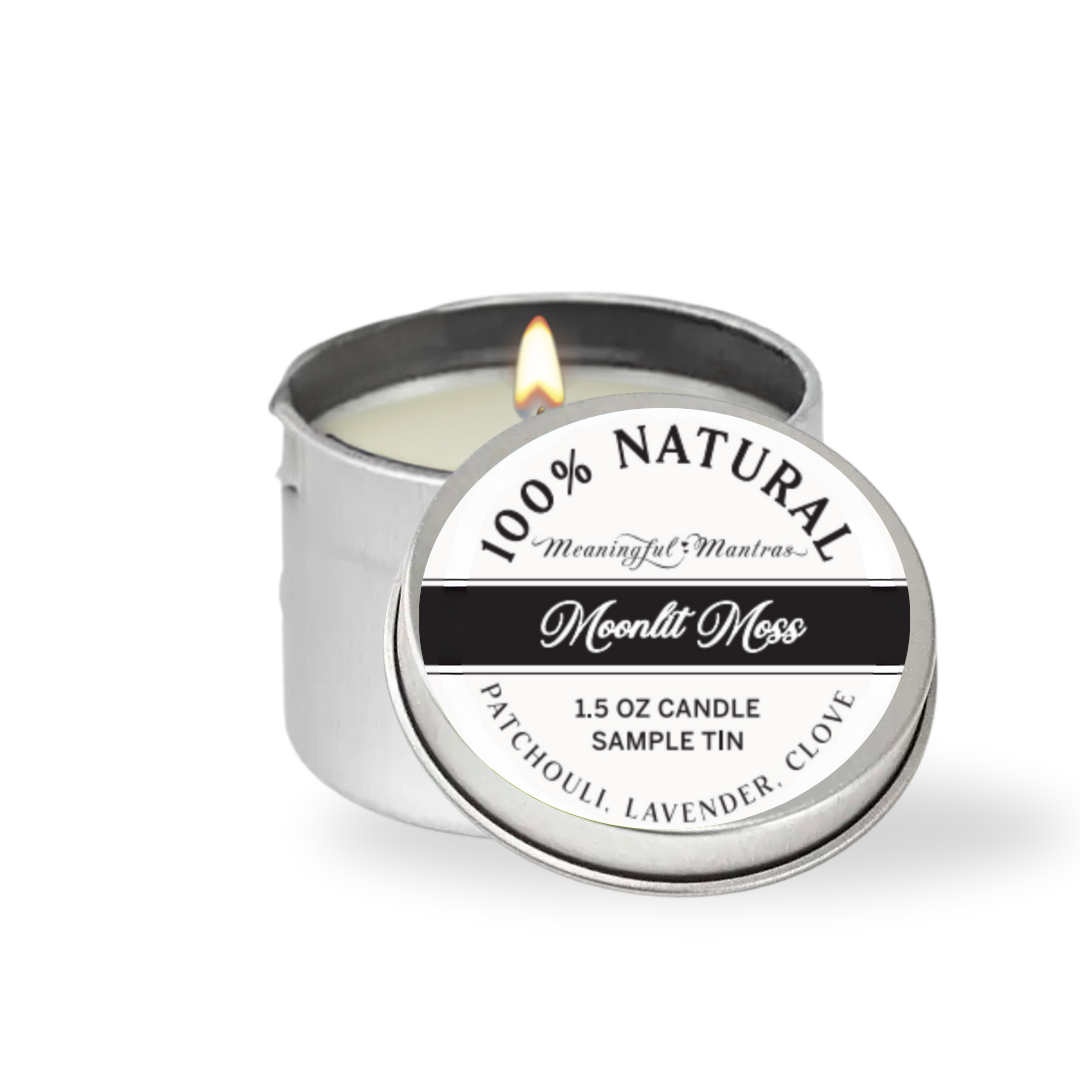Geranium Essential Oil: Balancing Mind and Body
Geranium Essential Oil is a powerful agent in the quest for mental and physical harmony, extracted from the fragrant leaves of the Pelargonium graveolens plant. Renowned for its sweet, floral aroma, this oil is a cornerstone in aromatherapy, offering a spectrum of benefits aimed at soothing the mind and rejuvenating the body. By exploring the multifaceted uses and advantages of Geranium Essential Oil, individuals can unlock a natural path to wellness, enhancing mood, promoting skin health, and fostering an overall sense of balance. This guide will navigate the essential aspects of Geranium Essential Oil, from its therapeutic properties to practical tips on safe usage, paving the way for a harmonized and healthier lifestyle.
What is Geranium Essential Oil
Geranium Essential Oil is a natural essence that extracts moisture through steam distillation from the leaves and stems of the Pelargonium graveolens. This plant, native to South Africa, gives us an oil with a sweet and floral scent, making it a beloved choice in aromatherapy. Its versatility and broad spectrum of health benefits are what set it apart. It is cherished for its delightful odor and capacity to balance emotions, soothe the mind, and enhance skin health. This makes Geranium Essential Oil a treasured component in daily wellness practices. It meets the growing interest in holistic health solutions, providing a natural approach to managing stress, caring for the skin, and improving emotional health. Its multifunctional nature underscores its value, making it an essential asset for those pursuing a more balanced and health-focused lifestyle. The oil's geraniol content is key to its therapeutic benefits. Geranium oil is considered beneficial when used in aromatherapy.
How does Geranium Essential Oil balance the mind?
Geranium Essential Oil is a natural mood enhancer, utilizing its sweet and floral aroma to uplift the spirit. In aromatherapy, it stimulates the brain's release of serotonin and dopamine, neurotransmitters crucial for enhancing mood and combating stress. Its calming effects are particularly beneficial for reducing anxiety and promoting relaxation, leading to a tranquil and balanced mental state. Incorporating geranium oil into your shampoo can significantly aid in achieving a more serene and harmonious mindset, proving its worth as a potent ally in maintaining mental wellness.
Through aromatherapy: enhancing mood
Utilizing Geranium Essential Oil in aromatherapy is akin to unlocking a natural mood elevator. The oil’s sweet, floral fragrance permeates the air, creating a more joyful and uplifting environment. This form of aromatherapy stimulates the brain's release of feel-good neurotransmitters such as serotonin and dopamine, effectively enhancing mood and fostering an optimistic state of mind. Studies have shown that the main chemical constituents of geranium found in Geranium Essential Oil are primarily responsible for its mood-enhancing effects, promoting relaxation and emotional well-being. Geranium oil is considered to be an essential oil that has been used for its mood-enhancing properties.
Practical Aromatherapy Tips
| Tip | Description |
|---|---|
| Diffuser Use | Add 3-5 drops of Geranium EO to a diffuser filled with water. Use for 30-60 minutes to enhance mood. |
| Direct Inhalation | Place 1-2 drops on a cotton ball or handkerchief and inhale deeply for immediate stress relief. |
| Aromatherapy Bath | Mix 5-8 drops with a carrier oil or bath salt and add to warm bath water for a relaxing soak. |
EO stands for Essential Oil.
By reducing stress and anxiety: promoting relaxation
In the battle against stress and anxiety, Geranium Essential Oil emerges as a potent ally. Its inherent calming qualities offer solace to the mind, melting away tension and inducing a profound sense of relaxation. Regular use of geranium oil mitigates acute stress responses but also aids in cultivating geranium oil in your shampoo to create a more balanced emotional landscape, empowering individuals to navigate life's ups and downs with greater ease and resilience.
Using Geranium Essential Oil for Stress and Anxiety
| Method | Instructions |
|---|---|
| Diffuser for Relaxation | Add 4-6 drops of Geranium EO to your diffuser in the evening or during stressful periods. |
| Topical Application | Dilute 2 drops of Geranium EO with 1 tsp of carrier oil and apply to temples or wrists. |
| Aromatherapy Massage | Mix 5 drops of Geranium EO with 2 tbsp of carrier oil for a soothing, stress-relieving massage. |
Note: For best results, use Geranium Essential Oil during stress or before sleep to promote relaxation and a peaceful state of mind.
How does Geranium Essential Oil benefit the body?
Geranium Essential Oil goes beyond soothing the mind to offer extensive bodily benefits. Its anti-inflammatory and antibacterial properties are crucial to skin health, offering relief and treatment for conditions such as acne, eczema, and dermatitis. This oil is not just about managing skin issues; it also enhances wound healing, thanks to its ability to support the body's natural repair mechanisms. Regular application can lead to healthier, more resilient skin, showcasing the oil's versatility in personal care routines. By embracing Geranium Essential Oil, individuals can tap into a holistic health tool, leveraging its therapeutic antioxidant properties to nurture the body inside and out, ensuring a balanced approach to wellness.
By promoting skin health: acne, eczema, and dermatitis
Geranium Essential Oil is a natural ally in promoting skin health, particularly for those battling acne, eczema, and dermatitis. Its anti-inflammatory and antibacterial capabilities provide a dual-action approach—reducing inflammation and fighting off bacteria. This contributes to a healthier skin environment, effectively minimizing outbreaks and soothing irritated skin. Incorporating this oil into skincare routines can lead to a visibly clearer and calmer complexion, offering a holistic solution to common skin concerns.
Application Methods for Skin Conditions
| Condition | Dilution Ratio | Application Method |
|---|---|---|
| Acne | 1 drop EO in 1 tsp carrier oil | Apply directly to spots using a cotton swab. |
| Eczema | 2 drops EO in 1 tbsp carrier oil | Gently massage into affected areas. |
| Dermatitis | 2 drops EO in 1 tbsp carrier oil | Apply to the skin with a soft cloth as a compress. |
EO stands for Essential Oil. Carrier oils such as jojoba or coconut oil are recommended.
Through enhancing wound healing: antibacterial properties
Additionally, the antibacterial properties of Geranium Essential Oil significantly enhance wound healing. Protecting wounds from bacterial infections and supporting the body’s healing mechanisms accelerates healing. This attribute makes it an invaluable component of natural first aid kits, ensuring that minor injuries heal more efficiently and with reduced cosmetics risk.
Wound Care with Geranium Essential Oil
| Wound Type | Dilution Ratio | Application Method |
|---|---|---|
| Minor Cuts | 1 drop EO in 2 tsp carrier oil | Clean the wound, then apply the mixture with a clean cloth. |
| Scrapes | 1 drop EO in 2 tsp carrier oil | Gently dab onto the scrape with a cotton ball. |
| Healing Wounds | 1 drop EO in 1 tbsp carrier oil | Apply around the wound area to support healing and prevent infection. |
Note: For serious wounds, seek medical attention. Geranium Essential Oil is for supplemental use only.
How to use Geranium Essential Oil safely
To fully enjoy the therapeutic benefits of Geranium Essential Oil while prioritizing safety, it is essential to adhere to best practices for use. Diluting the oil with a carrier oil such as jojoba or almond oil is critical, as it minimizes the risk of skin irritation when applied topically. It's also important to avoid ingesting the oil due to its potential toxicity without proper professional guidance. Before incorporating it into your routine, a patch test is advisable to detect allergic reactions. By following these guidelines, individuals can safely integrate Geranium Essential Oil into their wellness practices, ensuring both efficacy and safety. Geraniol is a primary chemical constituent of geranium and contributes to its aroma. Pelargonium graveolens is the botanical name for the geranium plant used in steam distillation to extract oil.
Dilution with carrier oils: jojoba or almond oil
Dilution with carrier oil is essential to ensure a safe and pleasant experience when topically using Geranium Essential Oil. Opting for gentle, skin-friendly oils such as jojoba or almond oil mitigates the risk of skin irritation and enhances the oil's absorption and efficacy. This step is crucial for leveraging the therapeutic properties of Geranium Essential Oil while safeguarding skin health.
Recommended Dilution Ratios
| Carrier Oil | Dilution Ratio (Geranium EO: Carrier Oil) | Use Case |
|---|---|---|
| Jojoba Oil | 1:6 | General skin care, moisturizing |
| Almond Oil | 1:6 | Sensitive skin, massage |
| Coconut Oil | 1:6 | Dry skin, hair care |
| Olive Oil | 1:8 | Scalp treatments, thicker consistency |
| Grapeseed Oil | 1:6 | Oily skin, lightweight moisturizer |
Note: EO stands for Essential Oil. These ratios are general guidelines. Adjustments may be needed based on individual skin sensitivity.
Avoiding ingestion without professional guidance: potential toxicity
When it comes to Geranium Essential Oil, it's imperative to avoid ingestion without the explicit advice of a healthcare professional. This precaution cannot be overstated, given the potential toxicity of essential oils when consumed. Ensuring that Geranium Essential Oil is used exclusively for topical or aromatic purposes helps maintain its role as a beneficial element of holistic wellness, free from the risks associated with improper use.
Potential Toxicity and Professional Guidance
| Method of Use | Guidance | Reasoning |
|---|---|---|
| Topical | Dilute with carrier oil; patch test first | Minimizes skin irritation |
| Aromatic | Use in diffuser; avoid direct inhalation | Prevents respiratory irritation |
| Ingestion | Avoid without professional advice | Risk of toxicity; requires expert guidance |
Note: Always consult with a healthcare professional or certified aromatherapist before altering the method of use, especially when considering ingesting essential oils.
Where to find quality Geranium Essential Oil
Finding quality Geranium Essential Oil is crucial for safely harnessing its full potential. Online holistic health stores are a go-to source, offering a broad selection alongside detailed descriptions and purity certifications. Local natural wellness shops are invaluable for those who prefer a more tactile shopping experience, often featuring organic and pure essential oils with ethical sourcing practices. When selecting Geranium Essential Oil, paying attention to certifications and consumer reviews can be immensely helpful, steering you toward products that promise both efficacy and safety. This careful approach ensures that the oil you integrate into your wellness routine is of the highest quality, ready to deliver its therapeutic benefits.
Online holistic health stores: verified sellers
Online holistic health stores are a valuable resource for those seeking quality Geranium Essential Oil. These digital storefronts often feature verified sellers, ensuring that every purchase is backed by transparent information regarding the oil's purity, origin, and extraction process. This level of detail supports informed buying decisions, making it easier for consumers to find essential oils like lavender oil that meet their standards for quality and safety.
Key Certifications and Qualities to Look For
| Certification/Quality | Description |
|---|---|
| Organic Certification | Indicates the oil is produced without synthetic pesticides or fertilizers. |
| GC/MS Testing | A test that ensures the oil's purity and chemical composition. |
| Ethical Sourcing | Confirms the oil is sourced in a way that's respectful to the environment and local communities. |
| Cold-Pressed/Steam Distilled | Extraction methods that preserve the oil's therapeutic properties. |
| Transparent Labeling | Provides detailed information about the oil's origin, botanical name, and extraction method. |
Local natural wellness shops: organic and pure sources
Meanwhile, local natural wellness shops provide a tangible experience for discovering organic and pure Geranium Essential Oil. These stores are known for their commitment to ethical sourcing and sustainability, offering products that benefit the user and the planet. Shopping locally allows consumers to directly engage with the products, gaining insights into their quality and origins, all while supporting small businesses within their community.
Questions to Ask and Labels to Look For
| Question/Label | Reasoning |
|---|---|
| "Is this oil organic?" | Organic oils are less likely to contain harmful pesticides. |
| "How is this oil extracted?" | Cold-pressed or steam-distilled oils maintain more of their natural benefits. |
| "Can you provide the GC/MS test results?" | These results offer proof of the oil's purity and composition. |
| "Where is this oil sourced from?" | Knowing the source can provide insights into the oil's quality and ethical sourcing practices. |
| "Does this oil have any additives?" | Pure oils without additives offer the most therapeutic benefits. |
By focusing on these certifications, qualities, questions, and labels, consumers can make informed decisions when purchasing Geranium Essential Oil, ensuring they receive a product that is effective, safe, and ethically produced. Geranium oil is considered an essential oil and has been used to promote clear skin.
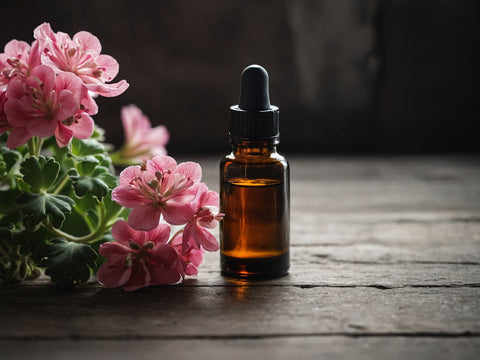
Common Misconceptions about Geranium Essential Oil
A few common misconceptions about Geranium Essential Oil often lead to misunderstandings about its use and benefits. Firstly, there's the belief that it can replace medication, which is misleading. Geranium Essential Oil should be seen as a complementary tool, enhancing wellness alongside conventional medicine, not substituting it. Secondly, the idea that all plants are the same fails to acknowledge the critical differences in quality, purity, and extraction methods. These factors greatly influence the oil's effectiveness and safety. Understanding these distinctions and recognizing Geranium Essential Oil’s role within a holistic health approach can maximize its benefits while ensuring safe use.
That it can replace medical treatments: supplementary use only
A prevalent misconception is that Geranium Essential Oil could act as a standalone solution, replacing medical treatments. It's vital to emphasize that this essential oil can be used supplementarily, enhancing health and wellness rather than substituting for professional medical care. Its role is to support and complement traditional treatments, ensuring that individuals do not forego necessary medical advice or interventions in favor of essential oil use alone.
All essential oils are the same; they vary by extraction and purity.
Dispelling the myth that all essential oils are the same requires understanding the nuances and purity of extraction methods. These factors greatly influence the effectiveness and safety of essential oils, including Geranium Essential Oil. An oil's therapeutic benefits and quality can vary widely based on its source and how it's processed, underscoring the importance of choosing high-quality, pure oils for the most reliable and beneficial outcomes. Recognizing these distinctions is crucial for informed and practical use. Geranium essential oils may beautify the skin.
Integrating Geranium Essential Oil into daily routines
Incorporating Geranium Essential Oil into daily life can profoundly impact well-being, offering a harmonious balance between mind and body. Its versatility in application, from aromatherapy to skincare, facilitates easy integration into personal care routines. Utilizing it in a diffuser can transform any space into a sanctuary of calm, effectively enhancing mood and reducing stress. Moreover, adding a few drops to skin care products imbues them with a delightful fragrance and leverages the oil's properties to promote skin health and radiance. Embracing these simple yet effective practices allows for the seamless inclusion of Geranium Essential Oil into daily routines, unlocking its potential to nurture and uplift.
In diffusers for aromatherapy: calming atmosphere
Utilizing Geranium Essential Oil in diffusers for aromatherapy is a splendid way to infuse any environment with a calming atmosphere. This practice helps in air purification and spreads the oil's comforting scent throughout the space, fostering a sense of relaxation and mental clarity. It’s a natural and effective method to alleviate stress and enhance overall mood, making it a perfect addition to home and office settings.
Recommended Diffuser Settings and Durations
| Setting | Duration | Purpose |
|---|---|---|
| Low Intensity | 30-60 minutes | For a subtle, continuous fragrance in the room. |
| High Intensity | 15-30 minutes | For a stronger scent, it is ideal for stress relief. |
| Intermittent | 2 hours on/off | For all-day use without overwhelming the senses. |
Note: Always start with the lowest setting to gauge the oil's effect on your mood and adjust as needed.
As part of a skincare regimen, diluted in face washes or creams
Incorporating Geranium Essential Oil into your skincare regimen by blending it into face washes or creams provides a holistic approach to skin health. The oil's antibacterial and anti-inflammatory properties support skin rejuvenation, helping to calm irritation and promote a glowing complexion. This application method allows for direct benefits from the oil's healing properties, offering a gentle yet potent solution for maintaining healthy, vibrant skin.
Skincare Recipes with Geranium Essential Oil
| Product Type | Recipe |
|---|---|
| Face Wash | Mix 2 drops of Geranium EO with 1 tbsp of unscented liquid face wash. |
| Moisturizing Cream | Blend 3 drops of Geranium EO with 2 tbsp of unscented moisturizing cream. |
| Acne Spot Treatment | Combine 1 drop of Geranium EO with 1 tsp of aloe vera gel. Apply directly to spots. |
| Anti-aging Serum | Mix 4 drops of Geranium EO with 2 tbsp of jojoba oil. Apply nightly. |
Note: EO stands for Essential Oil. Always perform a patch test before applying a new mixture to your face or body to ensure no adverse reaction.
By integrating Geranium Essential Oil into your daily routines through these recommended diffuser settings and skincare recipes, you can enhance your well-being and promote a healthier, more radiant complexion using lotion.
Potential Side Effects of Geranium Essential Oil
While Geranium Essential Oil boasts numerous health and wellness benefits, awareness of its potential side effects is crucial for safe use. Skin irritation is a possibility, especially for sensitive skin, highlighting the importance of conducting a patch test before completing the application. Moreover, although infrequent, allergic reactions can occur and require immediate cessation of use and medical consultation if symptoms appear. Being informed about these potential adverse effects enables users to approach Geranium Essential Oil with the necessary caution, ensuring a beneficial and risk-aware utilization of this natural remedy.
Skin irritation in sensitive individuals: patch test recommended
For those with sensitive skin, experiencing skin irritation after using Geranium Essential Oil is a possibility. Conducting a patch test is strongly advised before full-scale application to ensure safety and comfort. This precaution identifies adverse reactions, facilitating a more informed and cautious approach to incorporating this essential oil into your wellness routine.
How to Perform a Patch Test
| Step | Instruction | Note |
|---|---|---|
| 1 | Dilute 1 drop of Geranium Essential Oil in 1 teaspoon of carrier oil. | Jojoba or almond oil are good options for their mild properties. |
| 2 | Apply a small amount of the diluted oil to a patch of skin on the inner arm. | Choose an area that's usually covered to minimize potential exposure. |
| 3 | Cover the area with a bandage and wait 24-48 hours. | This allows enough time for any delayed reactions to appear. |
| 4 | Check the area for reactions like redness, itching, or blistering. | If any of these occur, wash the area and discontinue use. |
Note: If no reaction occurs, using the oil as intended is generally safe.
Allergic reactions: rare but possible; seek immediate help
Although allergic reactions to Geranium Essential Oil are uncommon, they can occur. If you notice symptoms of an allergy, it's critical to seek immediate medical attention. Prompt recognition and response to these reactions are crucial to ensuring safety and minimizing potential health risks associated with using pelargonium graveolens.
Common Symptoms of Allergic Reactions
| Symptom | Description |
|---|---|
| Skin rash or hives | Red, itchy bumps on the skin, often appearing suddenly. |
| Difficulty breathing | Wheezing, shortness of breath, or tightness in the chest. |
| Swelling | The swelling of the face, lips, tongue, or throat can lead to breathing difficulties. |
| Dizziness or fainting | A sudden feeling of lightheadedness or loss of consciousness. |
Note: These symptoms can appear immediately or within a few hours after exposure. Immediate medical attention is crucial to manage the reaction effectively.
By being informed about the potential side effects and knowing how to perform a patch test, users can enjoy the benefits of Geranium Essential Oil while minimizing the risk of adverse reactions.
Historical uses of Geranium Essential Oil
Geranium Essential Oil boasts a storied past, deeply entrenched in traditional medicine and aromatherapy practices. Celebrated for its wound healing and anti-inflammatory capabilities, it has been a staple in treating various skin ailments and promoting recovery from injuries. Additionally, its role in aromatherapy as a natural remedy for anxiety and mood disorders highlights its power to uplift and soothe the mind. The enduring legacy of Geranium Essential Oil, spanning centuries, is a testament to its versatile and effective nature, echoing the longstanding belief in its therapeutic virtues.
Traditional medicine: wound healing and anti-inflammatory
Geranium Essential Oil has been esteemed in traditional medicine for its remarkable wound healing and antifungal effects. Historically utilized to address various skin issues, from minor cuts to more severe conditions, its application has facilitated the body's healing and recovery processes. This age-old practice underscores the oil's invaluable contribution to natural health remedies.
Aromatherapy practices: anxiety and mood disorders
Aromatherapy practices have long harnessed the power of Geranium Essential Oil to combat anxiety and mood disorders. Its calming fragrance works wonders on the mind, promoting relaxation and emotional stability. This traditional approach to mental health care exemplifies the oil's ability to nurture and balance, reflecting its significance in enhancing psychological well-being.

